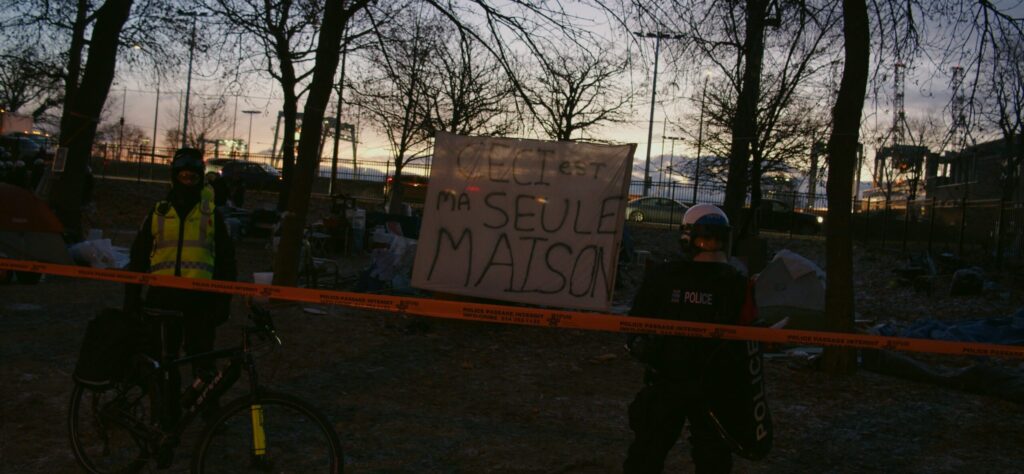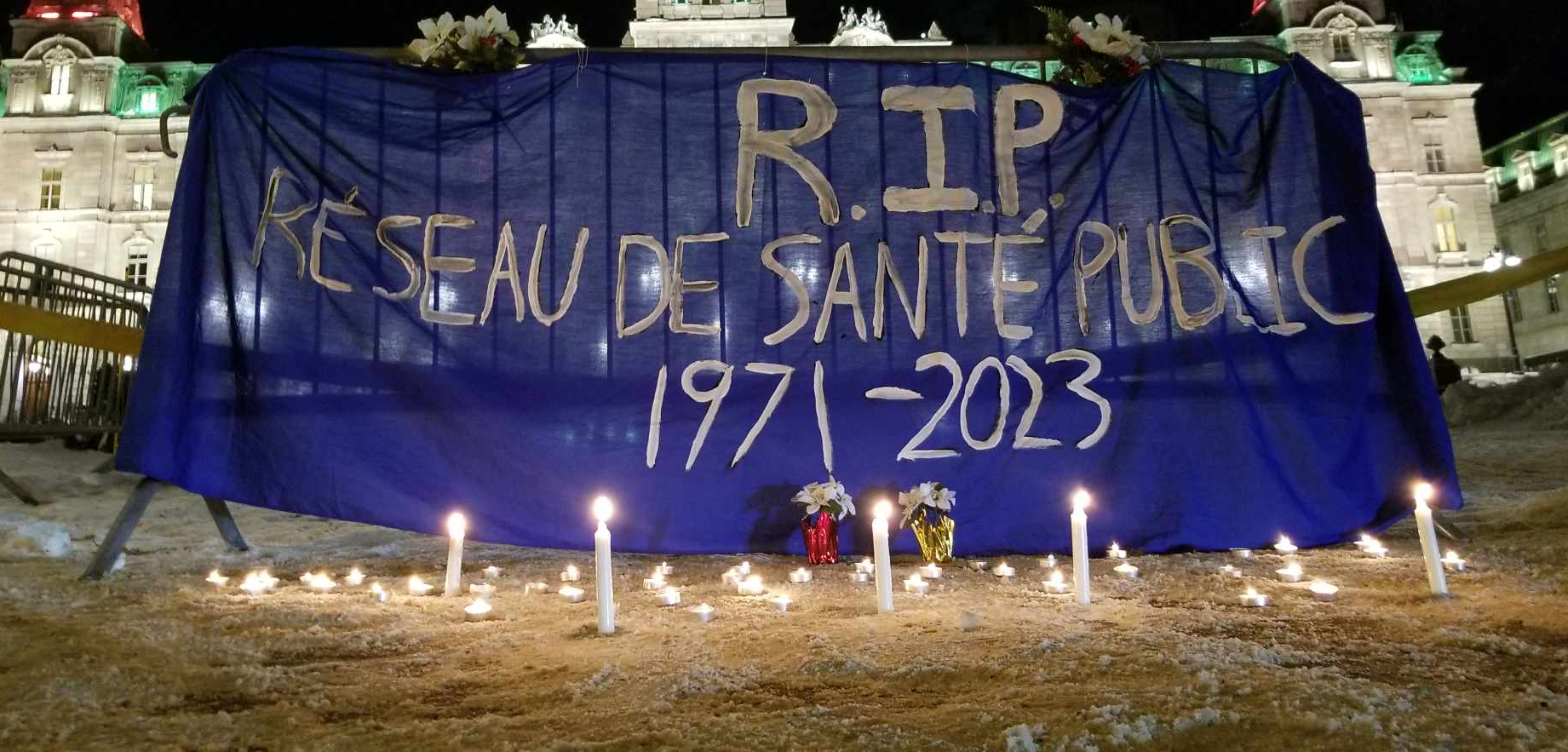François Legault's CAQ government did not let up in 2024. It used its supermajority in Quebec's National Assembly to continue adopting policies denounced by unions, community organizations and activist groups alike. These groups say that the Quebec state is attacking workers, the poor and tenants rather than inflation, the housing crisis and private-sector greed.
The CAQ has continued its reforms aimed at increasing “efficiency” and “flexibility” for workers in the public sector and in construction. These measures attack the working conditions of hundreds of thousands of people and align the operation of public services with that of the for-profit private sector. Examples include the creation of the Santé Quebec agency and the adoption of Bill 69, which aims to increase the role of the private sector in the hydroelectric sector.
The province's political elite never ceases to use the deplorable state of its public services to justify their partial or total privatization. On the other hand, many experts accuse the same government of deliberately sabotaging these services through mismanagement and budget cuts. These include cuts to public transit services, hiring freezes in schools that are already underfunded and falling into disrepair, and massive cuts to French language learning programs.
A dubious use of our tax dollars
The public funds saved by these austerity measures rarely seem to find their way back into the pockets of Quebec workers or into public services. A few symbolic examples left their mark on the population in 2024, when the famous Los Angeles Kings exhibition hockey game costing taxpayers between $5 and $7 million finally took place in October.
In addition, in 2024, it was revealed that the Prime Minister had purchased a jersey autographed by Guy Lafleur for nearly $1,300 of public money. Experts believe this to be the tip of the iceberg, as spending on government credit cards often goes unnoticed.
The real mass of wasted public funds, however, can be found in subsidies to the Legault government's oligarch friends and their bankrupt companies. These include the $710 million invested in Swedish battery manufacturer Northvolt, which was sheltered from creditors in November. A loan of $7.5 million in public money was also added to the tens of millions of dollars previously granted to Lion Électrique, a Quebec company also contemplating bankruptcy.

Abuses in the private sector
While they're getting fat off Quebec workers' taxes, Quebec's private sector is also exploiting them. In response to the historic unionization of an Amazon warehouse in Laval, the American multinational attacked the Quebec Labor Code as unconstitutional. It sought to take away Quebec workers' right to unionize when more than 50% of workers sign a card.
The big hotel companies also tried to take advantage of their workers, but as with Amazon, workers didn't give in. Over 30 unions negotiated together, demanding a 9% annual increase. Many got it, while others continued their fight, punctuated by surprise or indefinite strikes against scab- and tax-haven-friendly bosses.
The housing crisis intensifies
The past year has also been a difficult one for tenants. Landlords can now refuse lease transfers without justification, thanks to the adoption of Bill 31 by Housing Minister and real estate promoter France-Élaine Duranceau. The problems created by this measure are added to the dramatic issue of housing prices, when the average rent in Quebec rose from $760 when the CAQ was elected in 2018 to $1119 by the end of 2024.
Tenant advocacy organizations link this meteoric rise in housing prices to the homelessness crisis. In 2024, 15% of Montreal tenants reported having experienced an episode of homelessness, compared with 10% in 2023. In response to the growing problem, more than 100 homeless encampments were dismantled in Montreal between January and May 2024 alone. Some dismantling operations have led to the intervention of riot police and the arrest of activists wishing to defend the encampments.

Worrying repression
It wasn't just activists defending the homeless who faced repression in Quebec last year. While numerous pro-Palestinian student encampments were violently dismantled by the police, mainstream media columnists took the opportunity to attack their movement. They went so far as to call the students supporters of terrorism, just as they did for the demonstrators denouncing the NATO session in Montreal.
Towards another year of aggressive reforms?
The first years of François Legault's government were rather quiet. Prior to the COVID-19 pandemic, the CAQ had only had about a year to establish its government. But the pandemic crisis quickly monopolized the ministers' attention, from 2020 to early 2023. It was after this period that the true face of the CAQ began to reveal itself.
In the end, 2024 ended up being the year of aggressive reforms: the end of lease assignment, Santé Quebec, construction. Meanwhile, the unions failed to mobilize their members strongly enough to rein in these major transformations.
Unless workers push their central organizations to act, 2025 risks following the same path. However, the expiry of collective bargaining agreements in the construction industry, and the forthcoming negotiations between employers' associations and unions, could provide an opportunity for the latter to reverse the trend.


